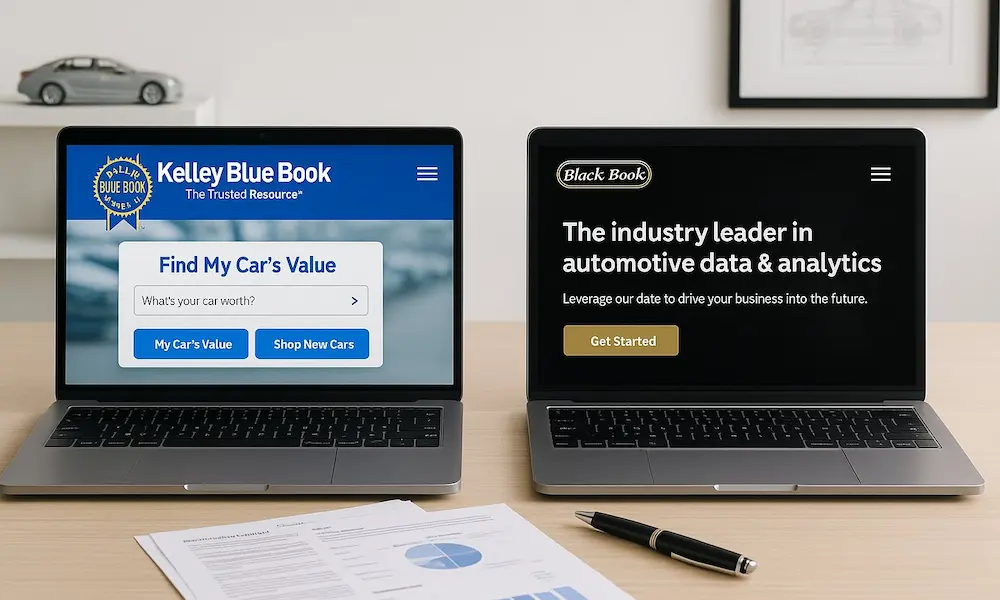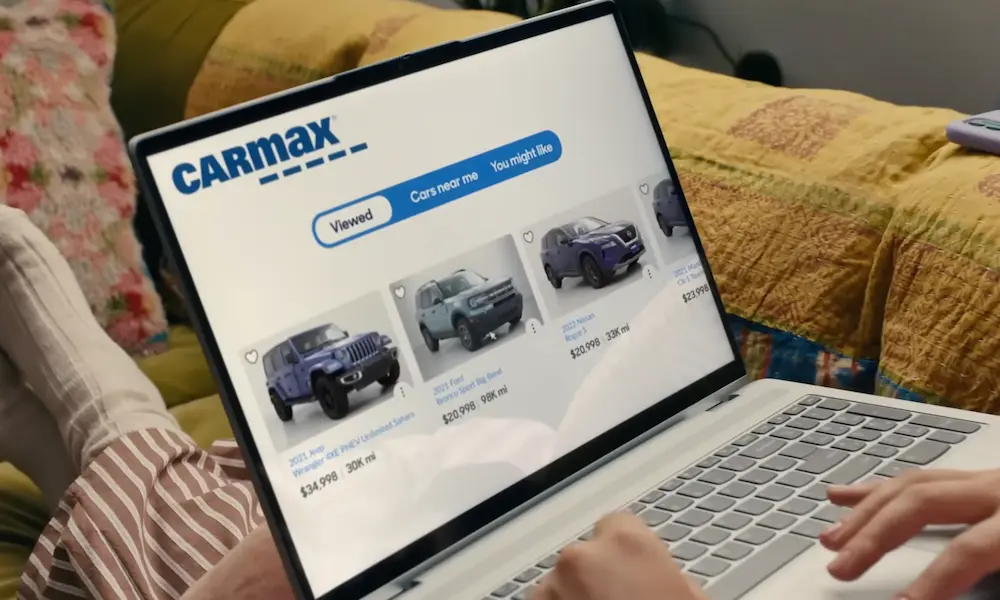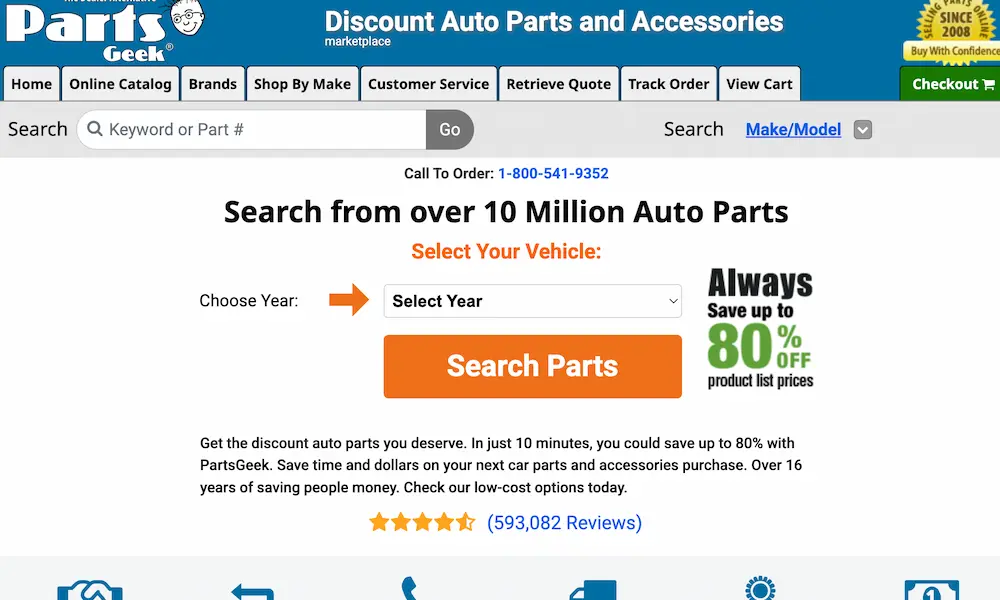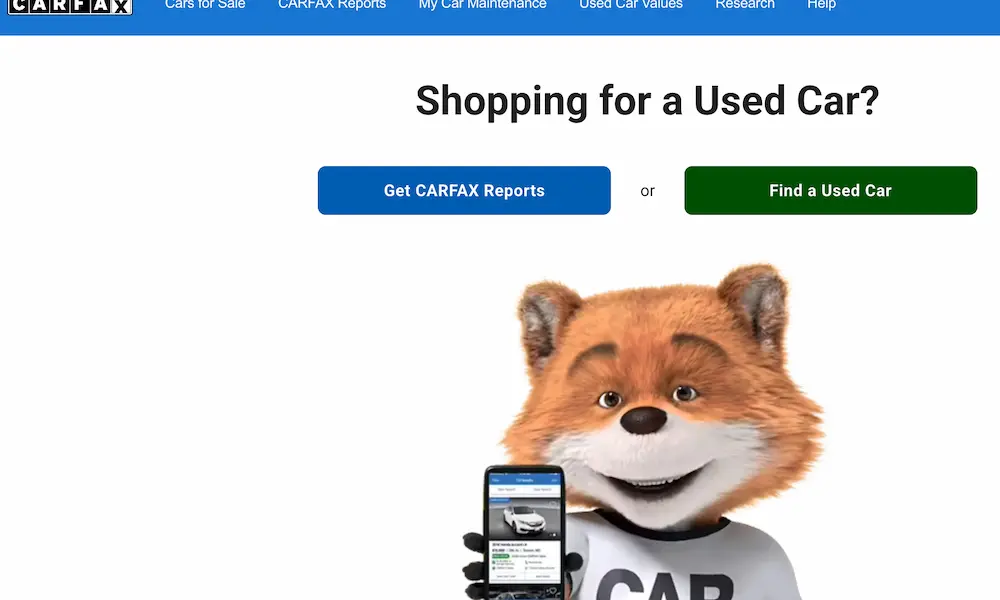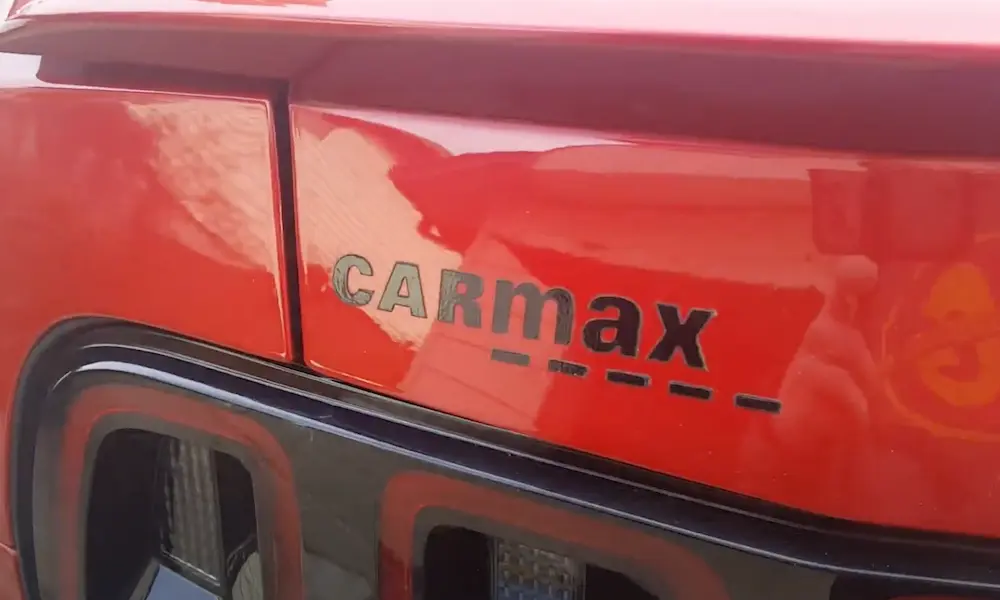Buying a car in Illinois from out of state can feel overwhelming, especially with all the paperwork and taxes involved. You’ll need to complete the Vehicle Use Tax Transaction Return (Form RUT-25) and pay the necessary fees to register your new ride. Don’t worry; this guide will help you navigate the process smoothly. We’ll cover every step, so you can be confident you’re doing it right.
Understanding the Basics of Out-of-State Car Buying
Buying a car out of state can be a rewarding process but comes with additional steps. Whether you’re opting for a new vehicle or a used vehicle, knowing what to expect makes the experience smoother.
The Process Explained
When buying a car from another state, start by researching the available options and making a list of cars you’re interested in. Contact sellers and get a copy of the vehicle history report to ensure the car’s quality and history.
Next, understand the paperwork needed. This typically includes the bill of sale, title transfer, and temporary registration. Ensure that all documents are accurate and complete to avoid complications. Contact your local DMV to find out specific requirements for registering a car bought out of state.
Don’t forget to get insurance for your new or used vehicle before driving it home. Sometimes, you might also need to consider shipping costs if driving the car back isn’t feasible.
New Versus Used Vehicles
Buying a new vehicle out of state often gives you more straightforward options regarding warranties and financing. Dealerships usually handle most of the paperwork, making the process smoother.
Opting for a used vehicle requires extra caution. Check for liens on the title and the condition of the car. A thorough inspection may be necessary to avoid future problems. Get quotes on the cost of any potential repairs and factor those into your budget.
Each type has its benefits, so choose based on your preferences and needs. Remember, buying a car out of state can be an enriching journey if done correctly.
Handling Finances and Negotiating Prices
Buying a car out of state can be a bit tricky when it comes to finances and negotiations. This section will help you understand how to calculate the purchase price, take advantage of dealer incentives, and factor in shipping fees.
Calculating the Purchase Price
Start by researching the car’s price using Kelley Blue Book. This will give you a good idea of the vehicle’s fair market value. Next, consider any local taxes you will need to pay when registering the car in Illinois. Often, these taxes are based on the car’s purchase price and can add a significant amount to your costs.
Be aware of additional state fees including title, registration, and documentation fees. Dealers might also add administrative fees unrelated to sales tax. It’s crucial to know these upfront to avoid surprises.
Understanding Dealer Incentives and Rebates
Dealerships often offer incentives and rebates to entice buyers. These can include cash back offers or low-interest financing. Make sure to ask the dealer about any current promotions that may apply to your situation.
Incentives can sometimes reduce the car’s price by thousands of dollars. Verify that these offers are available to out-of-state buyers, as some incentives are location-specific. Navigate dealership websites or call them directly to get this information.
Factoring in Shipping and Destination Fees
When you buy a car from out of state, you need to consider shipping and destination fees. Shipping fees depend on the distance between the dealer and your location in Illinois. Get quotes from multiple transport companies to ensure you’re getting a fair deal.
Destination fees are usually charged by manufacturers to cover the cost of delivering the car to the dealership. This fee is standard and not usually negotiable. Factor this into your overall budget to avoid unexpected costs when you finalize the purchase. Companies like Auto Transport Direct can provide a range of quotes for shipping your new vehicle safely and affordably.
Tackling Tax, Title, and Registration
Understanding the tax, title, and registration process is essential when buying a car in Illinois from out of state. You’ll need to navigate sales tax requirements, handle the title transfer, and complete the vehicle registration process efficiently to get your new car on the road without hiccups.
Navigating Illinois Sales Tax
When you buy a car from another state and bring it into Illinois, you are responsible for paying Illinois sales tax on that vehicle. If the sales tax in the state where you bought the car is lower than Illinois’ 6.25%, you must pay the difference to the Illinois Department of Revenue.
For example, if you buy a car in Missouri, where the sales tax is 4.225%, you will need to pay an additional 2.025% to Illinois. This ensures you meet the total 6.25% Illinois car sales tax requirement. You will need to file a Vehicle Use Tax Transaction Return using Form RUT-25 to report and pay any tax due.
Title Transfer Procedures
Transferring the title of a car from another state to Illinois involves several steps. First, you must fill out the Application for Vehicle Transaction. This application requires details about the vehicle and proof of ownership, such as the out-of-state title or other valid documentation.
You will also need to provide a valid form of identification. If the vehicle title is missing, the seller must apply for a duplicate title before you can complete the transfer process. Send the application and required documents to the Secretary of State’s office. Depending on the urgency, you can use the standard processing room or the expedited titles room. Ensuring all paperwork is correctly filled out and submitted is crucial to avoid delays and complications.
Vehicle Registration Process
After completing the title transfer, you need to register your car with the state. You do this by paying the registration fee and submitting a few essential documents. These documents typically include the Vehicle Use Tax Transaction Return Form RUT-50, proof of ownership, and a valid ID.
The registration fee in Illinois is $151. If you mail your application, it should be sent to the Secretary of State, Vehicle Services Department. Properly registering the vehicle ensures it is legally allowed on Illinois roads and helps avoid any potential fines or legal issues. Make sure to keep a copy of all documents submitted for your records.
Understanding Out-of-State Transactions
When buying a car in Illinois from out of state, you’ll need to manage several key steps including dealing with out-of-state dealerships, purchasing from a private seller, and filing the appropriate taxes and forms.
Dealing with Out-of-State Dealerships
When you buy from an out-of-state dealership, the process can be smooth if you follow some steps. First, contact the dealership to understand their process for out-of-state buyers. Ask if they provide temporary tags so you can drive the car back to Illinois.
Next, gather all necessary documents. Ensure you have the Vehicle Identification Number (VIN), a bill of sale, and proof of insurance. The dealership should assist you with getting the out-of-state title transferred to Illinois.
Finally, you need to pay the vehicle use tax upon registering the car in Illinois. Check with the dealership if they can give you a breakdown of these costs. This includes fees for title and registration, which often total around $300.
Purchasing from a Private Seller
Buying from a private seller involves a few more steps but can be just as straightforward. First, always ensure you get a thorough Vehicle History Report. This report will reveal any past accidents or issues with the vehicle.
Next, complete a bill of sale with the seller. This document should include the sale price, vehicle details, and both parties’ signatures. You’ll also need the out-of-state title, properly signed over to you.
After that, you must handle the vehicle use tax transaction. Illinois requires that you complete the Form RUT-25-LSE (Lease Tax Transaction Return) if applicable. Submit this form and pay the tax at the Secretary of State office when you register your vehicle.
Vehicle Use Tax Transaction Returns
You must file a vehicle use tax transaction return after purchasing your car. This tax applies to all vehicles bought out of state and brought into Illinois. The primary form used is RUT-25 for vehicle use tax and RUT-50 for Private Party Vehicle Use Tax.
First, determine the tax amount due based on the purchase price. Illinois has specific tax rates which can be found on the Illinois Department of Revenue website.
Next, submit the completed form along with your payment to the Secretary of State. It’s crucial to keep a copy of the completed Vehicle Use Tax Transaction Return for your records.
By following these steps, you can ensure that the process of bringing a car into Illinois is smooth and compliant with state laws.
Insurance and Warranties
When buying a car in Illinois from out of state, securing car insurance and understanding warranty transfers are crucial. It’s important to be prepared so you can drive your new vehicle without any issues.
Securing Car Insurance in Advance
Before you can drive your new car, you need car insurance. Getting insurance ahead of time ensures that you are covered right from the start. Many lenders require proof of insurance before finalizing the deal. You should contact several insurance companies for quotes to find the best rates.
Research different policies to determine what coverage suits you best. Consider comprehensive and collision coverage, especially for newer or more expensive vehicles. Once you decide on a policy, provide the insurance company with the vehicle’s details. This includes the VIN, make, model, and year.
After you purchase your policy, your insurer will send you proof of insurance. Keep this document handy as you will need it when registering the car in Illinois. Without it, you cannot legally drive the car home.
Understanding Warranty Transfers
When buying a car from out of state, it’s essential to know how the warranty works. Dealer warranties and manufacturer warranties may have different terms and transfer conditions. Make sure to investigate whether the warranty is transferable from the previous owner to you.
Contact the manufacturer or dealer to understand the specifics. You may need to fill out forms or pay a small fee for the transfer. This process ensures that you won’t face unexpected repair costs down the line. It is especially important if the car is relatively new and still under warranty.
Check if any extended warranties are available and what is covered. Some warranties may only cover specific parts, so read the terms carefully. Having a valid warranty can give you peace of mind and possibly save you a lot of money on repairs.
Preparing for Vehicle Relocation
When moving a car to Illinois from another state, you need to plan for shipping and ensure you have temporary registration for the vehicle. Being prepared will make the process smoother and stress-free.
Shipping Your Vehicle to Illinois
To start, you need to decide how your car will get to Illinois. Many people choose to ship their vehicles. Find a reliable shipping company that offers services between your current location and Illinois.
Steps to consider:
- Get Quotes: Contact multiple shipping companies and compare prices.
- Check Reviews: Read reviews online to find a trusted service.
- Book Early: Schedule your shipping in advance to avoid delays.
- Inspect Your Car: Take photos and note any pre-existing damage.
- Insurance: Make sure the shipping company provides adequate insurance.
You might be shipping from a nearby state or even California. Either way, these steps will help protect your investment during the move.
Obtaining Temporary Registration
Before you can drive your new car in Illinois, even if it’s just for a short distance, you need temporary registration. This is key when moving an out-of-state vehicle.
Key Actions:
- Visit Your Local DMV: Head to the DMV in your current state or Illinois to apply.
- Bring Documents: Include identification, proof of ownership, and insurance.
- Pay Fees: Be ready to pay any applicable fees for the temporary plates.
- Valid for a Limited Time: Temporary registrations are usually valid for 30 days, giving you enough time to register your vehicle in Illinois.
Obtaining temporary registration ensures you can legally drive your car on Illinois roads while completing the full registration process.
Meeting Illinois Specific Requirements
When you buy a car in Illinois from out of state, it’s important to meet specific requirements, including complying with emissions standards and acquiring the proper Illinois license plates.
Complying with Emissions Standards
You need to ensure your vehicle meets Illinois emissions requirements. If your car is registered in certain counties, it must pass an emissions test. These counties include Cook, DuPage, and parts of others such as Lake and Will.
You can find testing locations online or by contacting the Illinois Environmental Protection Agency. After your vehicle passes the test, you’ll receive a certification that you must keep in your car. This certification is often needed when you register your vehicle with the Illinois Secretary of State.
If your vehicle’s emissions testing is up-to-date from another state, you might still need to get tested in Illinois based on where you live. Missing this step can result in fines and delays in getting your car registered.
Acquiring the Proper Illinois License Plates
Once you have complied with emissions standards, you will need to get Illinois license plates. To do this, first, gather the necessary documents: your car title, proof of identity, proof of residency, and proof of insurance.
You need to fill out the Application for Vehicle Transaction(s) (Form VSD 190) and submit it to the Secretary of State’s office. Make sure to include the title transfer fee and registration fee. As of now, the title transfer fee is $155 and the registration fee is $151.
After submitting the form and fees, you will receive your Illinois license plates. Attach the new plates to your car and place the window sticker on your front windshield as proof of registration. Make sure your license plates are always visible and that the sticker remains valid to avoid any fines.
Final Steps and Considerations
When buying a car in Illinois from out of state, it’s crucial to handle the paperwork properly and address any lienholder information. Missing any step could complicate your purchase or delay your ability to drive the car legally.
Reviewing Paperwork and Final Checklists
Before finalizing your car purchase, you must review the title and registration paperwork. Ensure the VIN (Vehicle Identification Number) on the documents matches that on the car. Also, check for any discrepancies in the model year or other details.
When transferring the title, complete the bill of sale with accurate information. You will need to pay the title transfer fee and registration fee. In Illinois, these fees are typically paid by check or money order. Ensure you have proof of insurance before you drive the car, as it is mandatory.
Your local DMV may require you to fill out additional forms. It’s a good idea to contact them and verify what specific documents are needed. This careful attention to detail will help avoid any unexpected problems.
Addressing Lienholder Information
If the car has a lien, make sure you address it while purchasing. Verify with the seller that the lienholder has cleared the lien and obtain written confirmation. This ensures that the title is free and transferable.
Sometimes, the lienholder might send the title directly to you or your local DMV. Double-check this process so that you aren’t left without the necessary documents. If there are any remaining payments, coordinate these with the seller and the lienholder.
Ensure you understand the roles and responsibilities in transferring the title and clear any existing liens. This process might involve several steps but is crucial for legally owning your new car.


